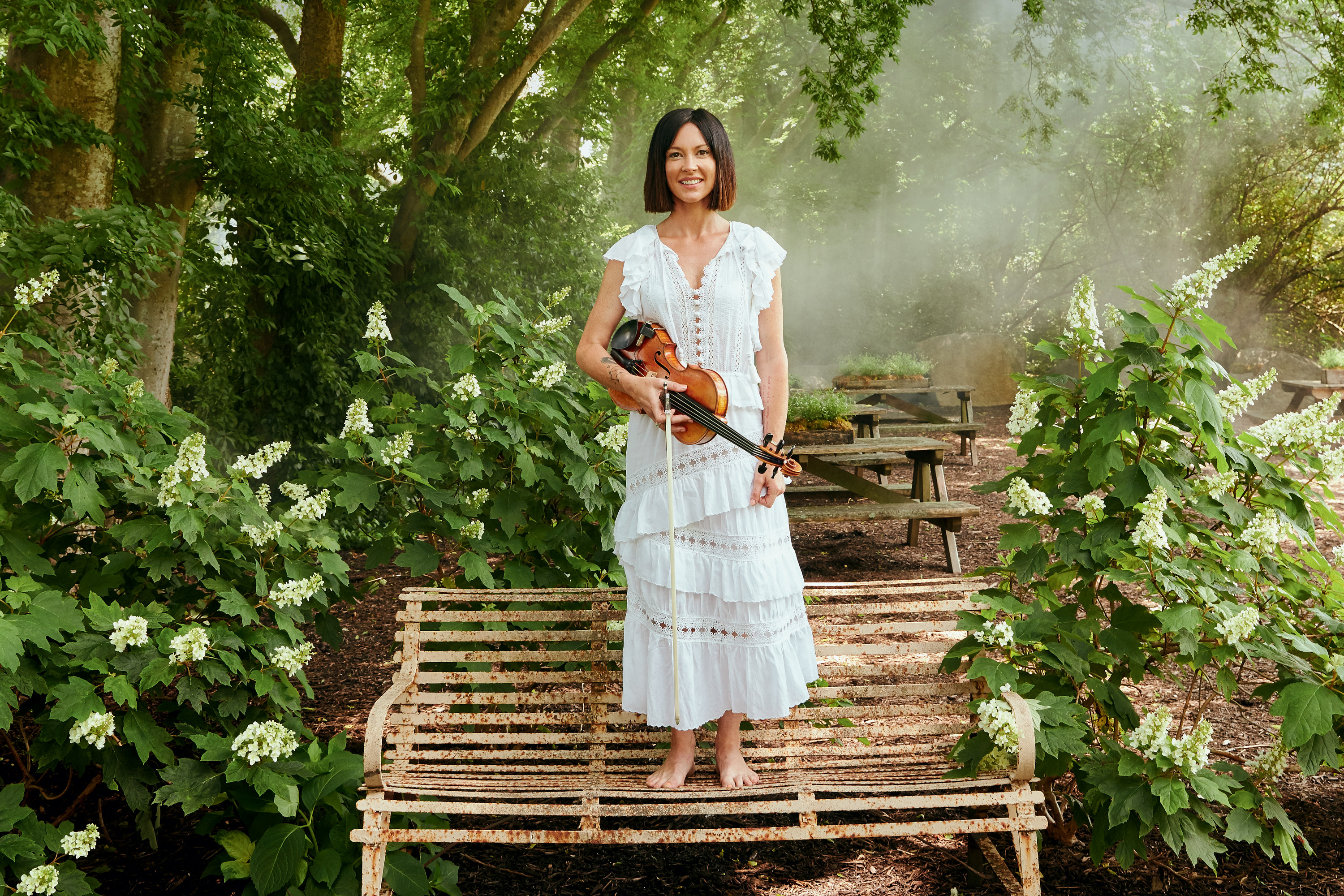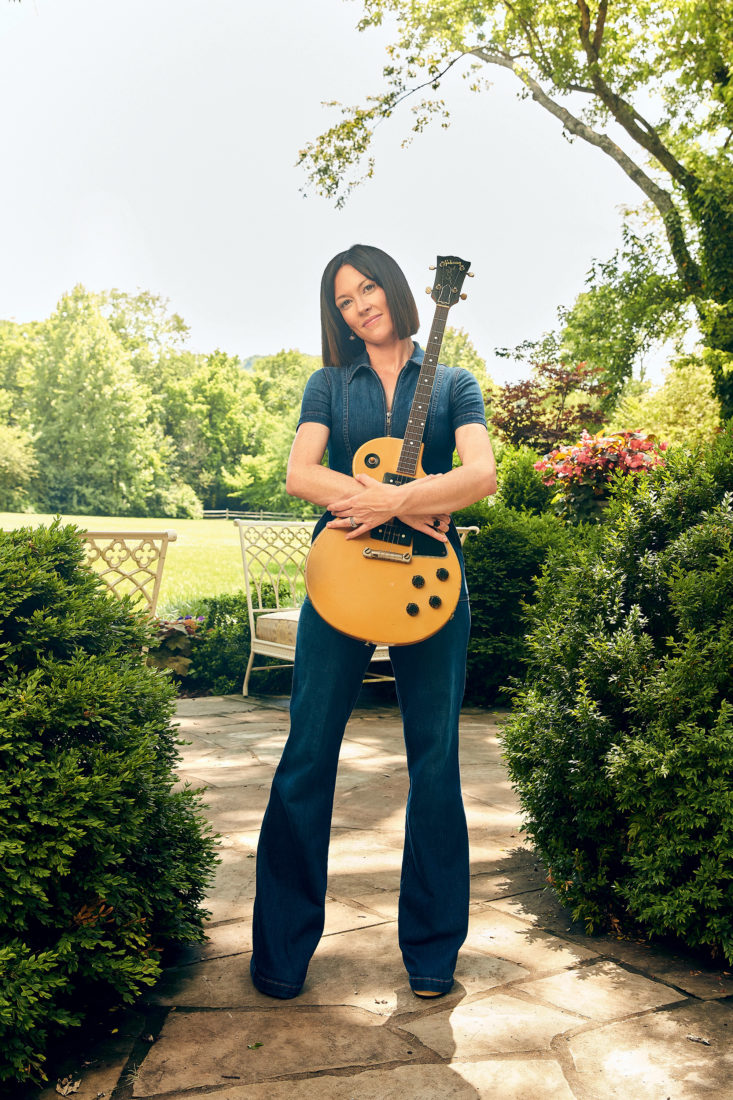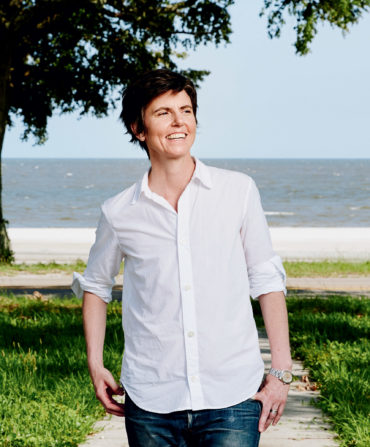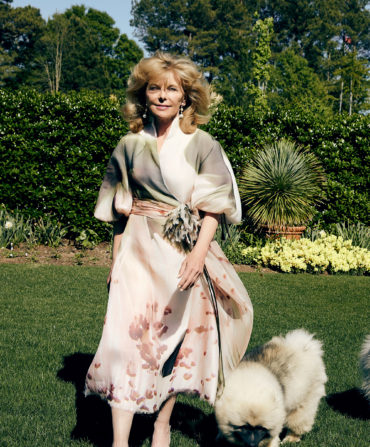In her twenty-plus years as a touring musician, Amanda Shires has learned plenty. “I’ve learned a lot about tires, and tire pressure, and how to work gauges, and where to find the appropriate air amounts for your tires,” she says with a laugh. At fifteen, Shires got her first taste of life on the road with the Texas Playboys, a Western swing band. “I learned the importance of not making excuses—just doing the best you can and learning from your mistakes.”
The fiddle player, singer, and songwriter still tours, but now as a solo artist and bandleader, in between raising a daughter, Mercy, with her husband, Jason Isbell, earning a master’s in creative writing from Sewanee, and recording music—five albums’ worth, and counting. Her recently released To the Sunset pairs poetic observations about fear and hardship with messages of growth and determination. These themes also arise when she discusses her own life, from finding balance at home to improvising onstage. “You have to learn a little bit about forgiving yourself,” Shires says, “and accepting yourself the way you are.”
You’re a bandleader now, but you played for others for many years. What have both sides taught you?
Starting out as a side-person, I learned a lot about how to work for other people—how to work within different personality types and group dynamics. A lot rides on a leader being generous, both with their time and their respect. In that way, it’s just like any other job. It was hardest to transition into being a leader when I found myself with musicians who wouldn’t try. I had to learn how to move on from people—even people whom I’d grown close to.
How did you deal with that?
I wasn’t conditioned to present issues in the way men are raised to—shortly stating exactly what you want, being direct, and trying not to associate business with another person’s feelings. As women, we’re raised to be nurturing, and caring. Not that men aren’t, but women are conditioned to present ourselves in a certain way.
I see that changing. I try to be conscious and not let my own daughter worry about how she presents basic problems or celebrations. I ask myself, How would Jason say this to a band? Or, How would Billy Joe Shaver have told me this? Aside from that, I try to be true to myself and try to be a good human being. Then whatever else happens is really not my fault.
You keep a journal. How did that start?
I’ve done it since Billy Joe Shaver thought my songs were worth something. He said, “You should keep writing and move to Nashville and be a songwriter.” At first I thought it was a polite way to fire me. I was like, “No, Billy Joe! I love my job. I absolutely don’t want to do that.” Then just a couple of years later, there I am, packing up my U-Haul and driving the sixteen hours from Lubbock, Texas, to Nashville to pursue my dreams of being a waitress. [Laughs.]
To the Sunset takes its title from the chorus of the track “Eve’s Daughter.” Why did that line stick out to you?
It’s a toast! A toast to the sunset. Let’s celebrate ’em—the good days and the bad days, and the experiences we’ve gone through that make us who we are now. In that song specifically, I was writing my mom’s story—having me young, having my sister young. It took her a long time to find the right husband. She’s my role model, and she’s made the tough decisions to move on and start over. But she wouldn’t take away those relationships because she wouldn’t have us. The sun sets on some dark days and some bright days. You can celebrate the losses and the wins. And then, toast to the sunsets we haven’t had yet.

robby klein
What surprised you the most about motherhood when it became your turn?
I was never going to have a child, before Mercy. During the pregnancy and touring, I had a lot of doubts about how I was going to be able to bring somebody into the world and still keep my identity—keep writing, keep playing music. I had doubts about how to even be a mom. I had a lot of fear, as a lot of people do with their first child.
Then she was born. I realized all of the clichés are true. It really is life changing. You see things in a different way, because even your own shadow becomes something fascinating. And as far as the work goes, of course you can still do your job. You make little mistakes as you go along, but you start figuring stuff out. In the end, you’re still a woman in the music business, no matter how you spin it—whether you have kids or not.
What do you mean by that?
The music business is really a patriarchy. There are only a couple of spots available for women to fill, so there’s more competition than there needs to be. In country music especially, you have to be sold or presented as somebody who’s available—as a person who makes people think, Oh, that could be my girlfriend. That could be my girl next door. For me, art isn’t competitive. I can see things are changing, and hopefully it will get better. We’re not solely objectified—there are exceptions, of course—but that’s how the majority of women’s music has been sold for a long time.
Rewind to when you first started out: What advice would you give yourself?
Don’t expect people to reciprocate all the time, on anything you’re giving. Try to be a better listener, because I wasn’t a very good listener early on. And always pack a swimsuit—you never know when you’re gonna need it. You never know! Could be a creek, could be a Slip ’N Slide.
To the Sunset is set for release on August 3, 2018.
Read more from our August/September 2018 Southern Women issue








